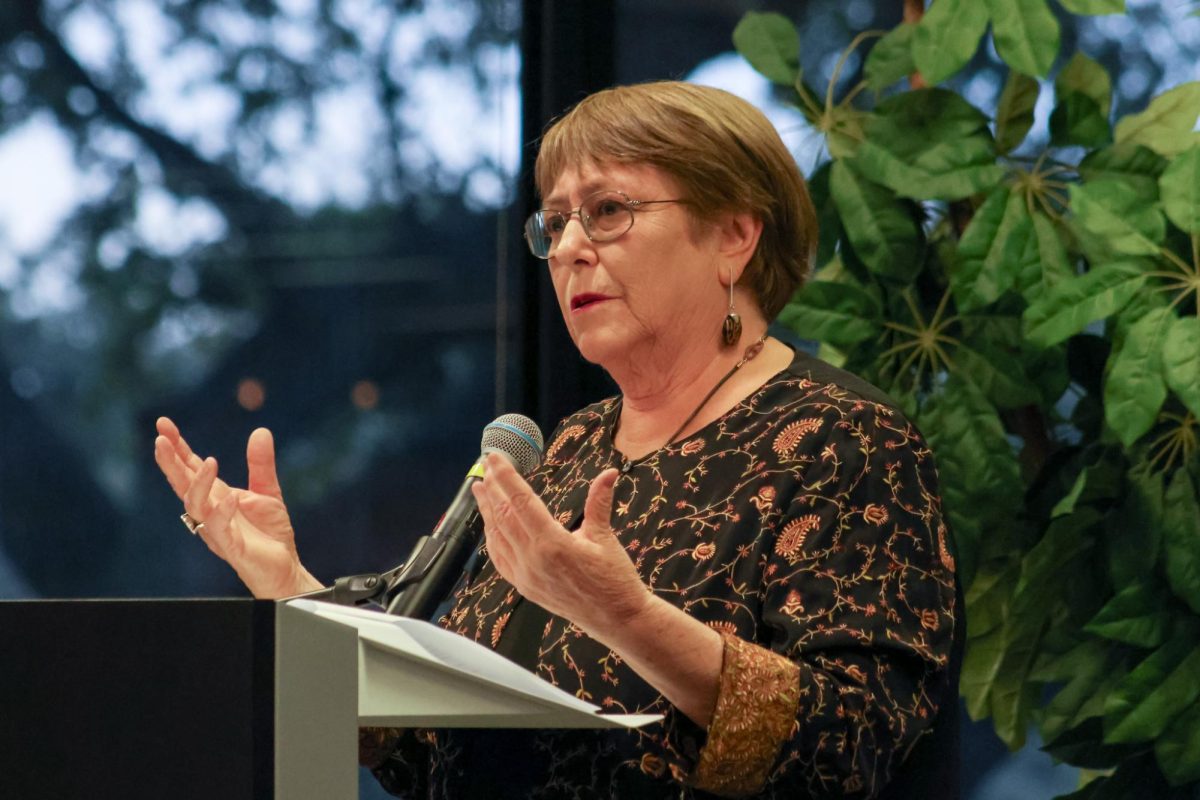Chile’s first female president, Michelle Bachelet, emphasized the importance of women’s leadership and gender equality in her address at the Teresa Lozano Long Institute of Latin American Studies on Wednesday.
“The truth is we shouldn’t take (women’s rights) for granted because there will always be people who are trying to set back these rights,” she said. “We need to legitimize gender public policy across our society so that setbacks regarding women’s rights are not tolerated.”
The address, titled “Women’s Leadership and Gender Equality in the Americas,” was part of the College of Liberal Arts’ Mary Ann Faulkner Distinguished Lecture Series in Latin American Public Affairs and Politics. When Institute director Adela Pineda Franco introduced Bachelet, she paraphrased a statement Bachelet made in a previous address.
“When a woman comes to politics alone, the woman changes,” Franco said. “When many women enter politics, politics change.”
Civil unrest in Chile catalyzed Bachelet’s life — she and her mother were jailed and exiled following General Augusto Pinochet’s 1973 military coup, and her father, an Air Force general, died in prison.
After studying medicine and working as a physician in Germany, she returned to Chile in the 1980s, where she eventually served two non-consecutive terms as president. She also served as Minister of Health and the United Nations High Commissioner for Human Rights, as well as the first female Minister of Defense in Latin America.
In the hour-long address, she discussed obstacles women face in life and politics in the Americas, including challenges to bodily autonomy, gender-based violence and bias, artificial intelligence as well as climate change. She said it’s important that leaders renew their focus on the completion of the 2030 Agenda for Sustainable Development, a 2015 plan adopted by world leaders in the U.N. with gender equality goals.
“The (UN Women Progress on Sustainable Development Goals) report finds that the world is still falling short on its commitment to women and girls,” Bachelet said. “With just six years left before the 2030 deadline, not a single indicator under goal five, which focuses on gender equality, has been fully achieved.”
Alejandra Chavez, an international relations junior focusing on Latin America, said Bachelet’s words inspired her to consider politics herself.
“I wasn’t very interested in going into politics … but (Bachelet’s) words of women approaching government with empathy really resonated with me,” Chavez said. “As a woman, I approach everything with empathy — I want to put myself in the other person’s shoes, and ultimately, that really did inspire me to want to look more into politics and the future in that.”














